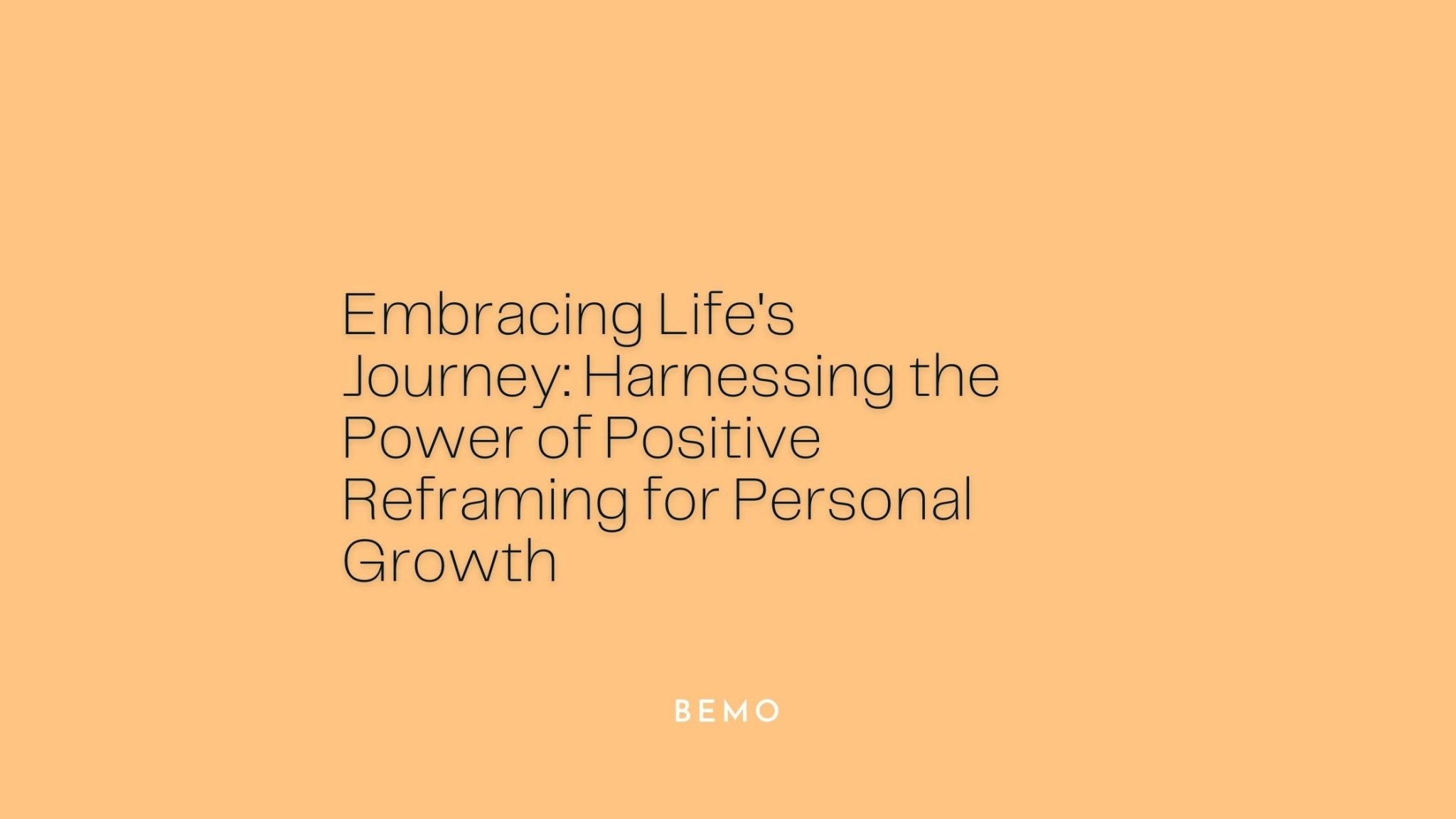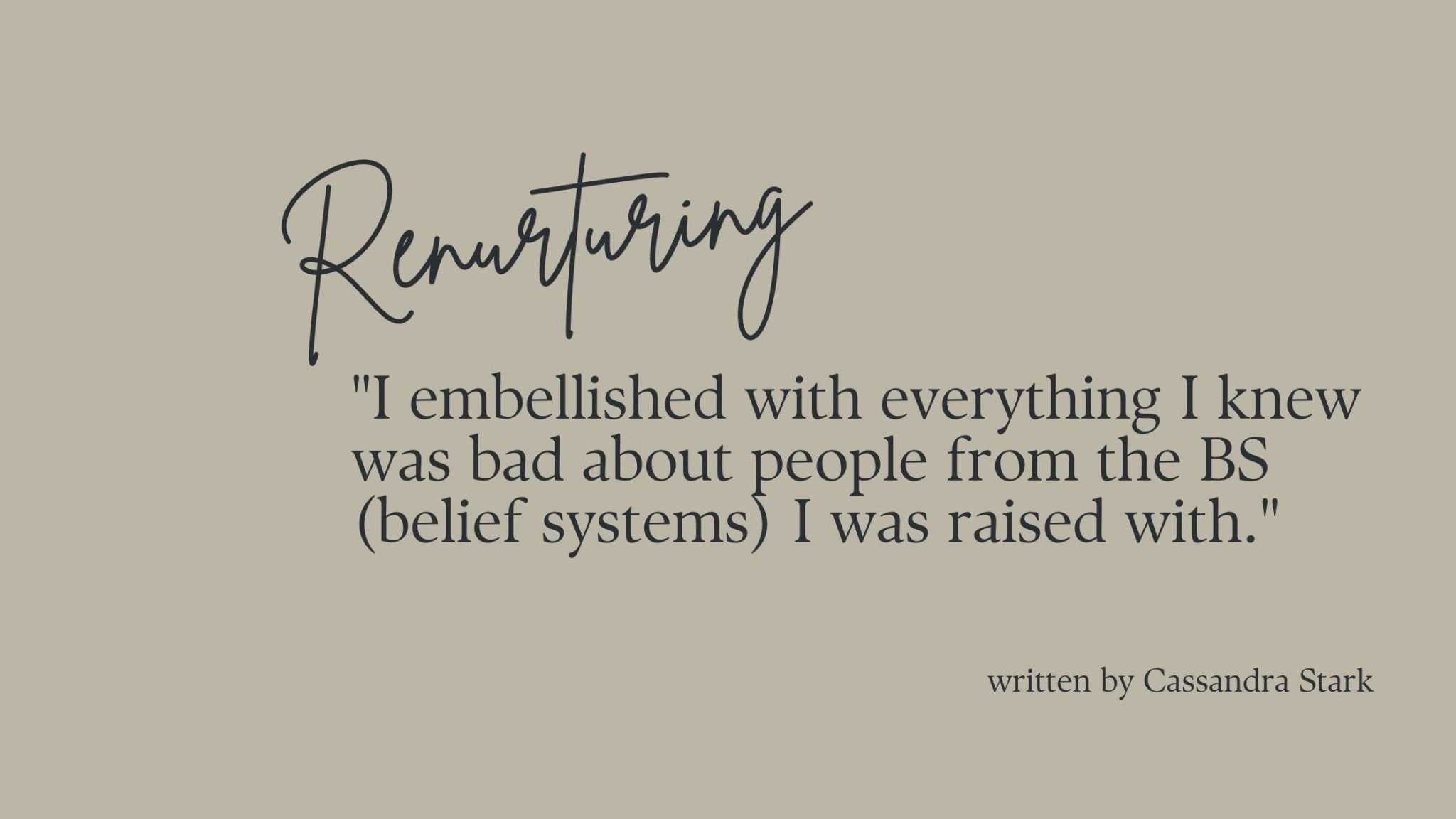Navigating Through Challenges: Embracing Positive Reframing
Life's journey is not always a smooth sail; there are moments of turbulence when we find ourselves overwhelmed by challenges and negativity. In such times, positive reframing can serve as a beacon of hope, guiding us through the darkest days without resorting to gaslighting ourselves. We're not talking about toxic positivity here. Not everything has a silver lining. Instead, we're talking about a cognitive reframing structure that builds on therapies like CBT and DBT, allowing you to embrace the growth of perspective by tapping into the deep Knowing that you "Get To" experience a plethora of positivity in life.
For example, recently, I have been feeling a lot of familiar C-PTSD triggers around safety and space. Some of the simplest things in life somehow manifest as a threat to my safety as it relates to having a safe space or meeting my basic, fundamental needs. These triggers used to send me into reeling days and weeks of fight-flight reactivity where I felt defensive and against everyone with an almost primal instinct to protect what space I had. Lately, I wrote about one of these more recent triggers in my BeMo Journal. I let it all go on the page and moved through the steps of the FUNCK Method. When I woke up the next morning, I felt an overwhelming connection to the "I Get To" aspects of many of the resentments I had shared with myself the night before. I was reminded that I can sit down and reflect on these aspects using the BeMo Extra "I Get To" practice for Enoughness - a play on some of Brené Brown's most definitive work.
BeMo's "I Get To" practice for Enoughness reframes perspectives by shifting focus from scarcity to abundance. By acknowledging what one has the opportunity to do rather than what one lacks, individuals cultivate gratitude and appreciation for their current circumstances. This shift in mindset fosters positive emotions and enhances overall well-being.
Let's work together to navigate your challenges and implement this cognitive reframing practice for a life of security and abundance.
Acknowledge the Moment
When faced with adversity, it's crucial to acknowledge our emotions and the challenges at hand. Rather than dismissing our feelings, we honor them as valid expressions of our human experience. By recognizing our struggles without judgment, we lay the foundation for genuine growth and transformation.
Use your Brain Dump as a Clearing practice before tapping in to how you Feel. Express your feelings with as many words from the BeMo Feelings Wheel as you relate to, ensuring that you use "I feel statements." Continue through the remainder of the FUNCK method as outlined in your BeMo Practice Guide.
Embrace Positive Reframing
Positive reframing isn't about denying the reality of our circumstances; it's about shifting our perspective to uncover hidden blessings amidst adversity. When we encounter tasks or situations that seem daunting, such as attending a meeting, doing the laundry, or engaging in a difficult conversation, we can reframe our mindset from "I have to" to "I get to."
Pause for a moment between your FUNCK process and your Positives. Use the power of your centered and soothed Being to tap into the "I Get To" Practice. Write out as many things as you can think of.
Here's an example of how I turned toxic resentment into a powerful, ear-to-ear smiling approach.
- I get to show up for the one that I love every day and be helpful.
- I get to take on tasks that perhaps he doesn't have time for or he isn't encouraged to start.
- I get to make space for us to grow into this next phase of our life and ensure we arrive safely and with the utmost bravery, together.
Cultivate Gratitude and Perspective
By reframing obligations or resentments as opportunities, we cultivate a sense of gratitude for the abundance in our lives. We acknowledge the privilege of having a job that challenges us to grow, the blessing of owning clothes that necessitate laundry, and the honor of engaging in meaningful conversations with friends - all examples of how we talk to ourselves with resentment and criticism with everyday obstacles.
BeMo's "I Get To" practice allows you to tap into everyday events, from chores or friendly interactions to deep, repeated conversations and obstacles you experience with your loved ones.
Tap into the Power of "I Get Power
In moments of distress, the mantra of "I Get To" becomes a source of strength and resilience. It reminds us of our inherent capacity to navigate life's challenges with grace and dignity. Through this cognitive reframing, we transcend survival and embrace the transformative journey of self-discovery and renewal.
End on a Positive Note
As we journey through life's ebbs and flows, the practice of positive reframing offers a powerful tool for navigating adversity with grace and resilience. By embracing the "I Get To" mindset, we transcend the limitations of negativity and cultivate a deep sense of gratitude for the myriad blessings that enrich our lives. So, let us harness the transformative power of perspective and emerge from every challenge stronger, wiser, and more resilient than before.
Now that you've completed your "I Get To" practice, end on a Positive note. Take this time to not only list what great things have been happening in your life lately but also to self-recognize and acknowledge the positivity of what you just instilled in yourself as part of your Becoming.









Leave a comment